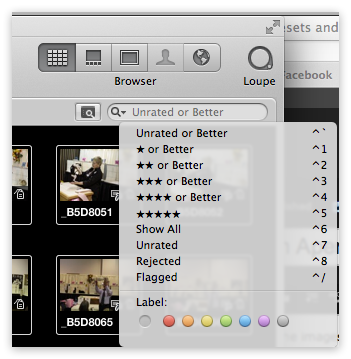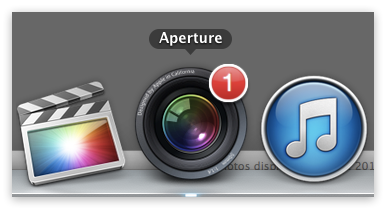I recently decided to go through some assignments and delete “outtakes” from projects where it makes sense to that. A lot of what I do for the newspaper are assignments that will never again see the light of day. They are not assignments that will end up in my portfolio. Many times I shoot over 100 frames to get one or two frames. The images shot building up to the final select are totally redundant and not worth the hard drive space to keep them.
There’s some risk to this, because it relies on my ability to edit on that given day—maybe I didn’t make the right choice. I minimize that risk by using the Star rating system that Aperture provides. I start out by going through the assignment and assigning one star to every viable image. I will also add a star to every image I shot for identification purposes. For instance, if I write someone’s name down, or someone gives me a card, I will take photo of it so it will always be with the shoot. I also photograph street signs and informational signs at kiosks or anything else that will help someone understand what they are seeing. I give all these images one star. After that, I’ll go through and give the final selects three stars, and then if there’s redundancy, I’ll downgrade redundant images to two stars.
Since I do this on virtually every assignment, it makes it easy to determine what images to delete later.
Here’s My Process
I select the Project in Browser view. I hit Control+1 to make sure I did, in fact, rate the images properly earlier. I’ll watch the image number count at the bottom to see how many are there.
 The drop down menu in the search field shows you the key commands[more]
The drop down menu in the search field shows you the key commands[more]





